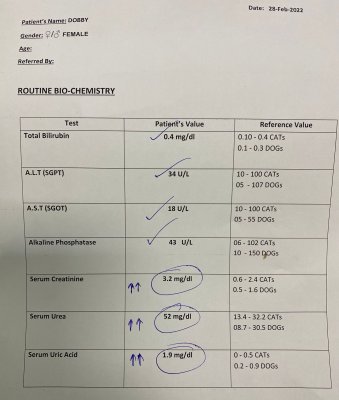- Joined
- Oct 9, 2021
- Messages
- 154
- Purraise
- 33
Can acute kidney disease be reversed, treated? Have you seen any cat with AKD who survived and the disease was reversed and the cat lived a full life? Also, does such a cat need to be on fluids all her life???





